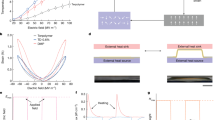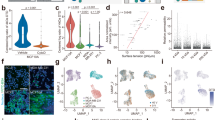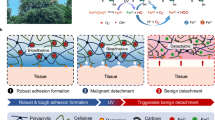Abstract
SOME years ago, one of us1 showed that the quantity of static electricity developed on textiles during, for example, the carding operation, could be explained in terms of the electrical leak through the fibre; but the resistance measurements made at that time were limited to the order of 1011 ohms by the electric leak of the supporting frame.
This is a preview of subscription content, access via your institution
Access options
Subscribe to this journal
Receive 51 print issues and online access
$199.00 per year
only $3.90 per issue
Buy this article
- Purchase on Springer Link
- Instant access to full article PDF
Prices may be subject to local taxes which are calculated during checkout
Similar content being viewed by others
References
Keggin, Morris and Yuill, J. Text. Inst., 40, T702 (1949).
Carslaw and Jaeger, “Conduction of Heat in Solids”, p. 83, equat. 2 (Oxf. Univ. Press, 1947).
Carslaw and Jaeger, “Conduction of Heat in Solids”, p. 107, equat. 21 (Oxf. Univ. Press, 1947).
Author information
Authors and Affiliations
Rights and permissions
About this article
Cite this article
MORRIS, G., YOUNG, A. A Method of determining the Electrical Resistance of Fibre Bundles. Nature 171, 220–221 (1953). https://doi.org/10.1038/171220b0
Issue Date:
DOI: https://doi.org/10.1038/171220b0
Comments
By submitting a comment you agree to abide by our Terms and Community Guidelines. If you find something abusive or that does not comply with our terms or guidelines please flag it as inappropriate.



